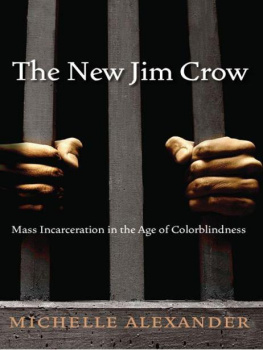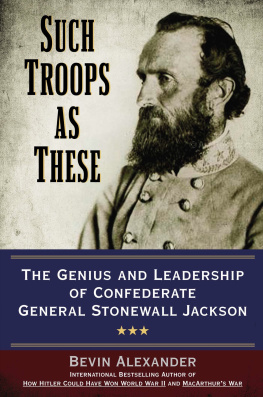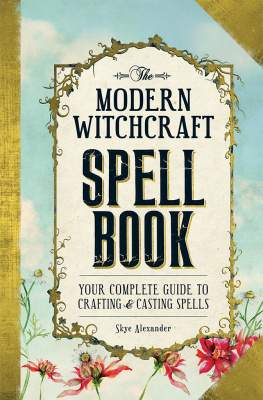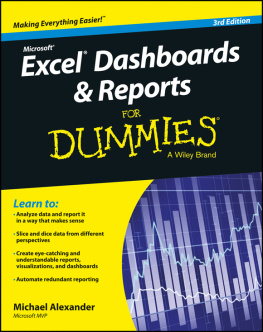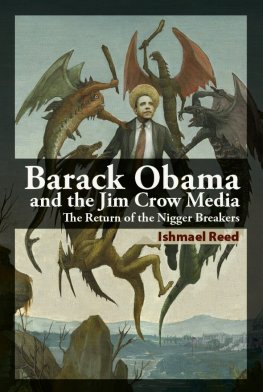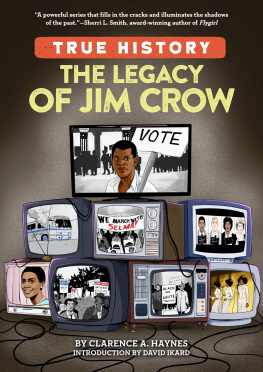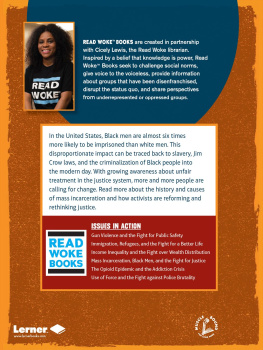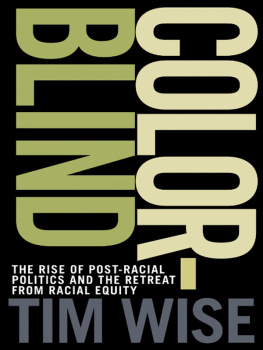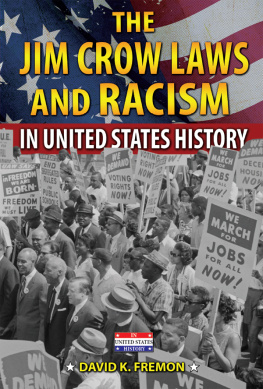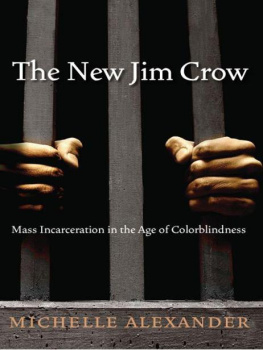Table of Contents
For Nicole, Jonathan, and Corinne
Acknowledgments
It is often said, It takes a village to raise a child. In my case, it has taken a village to write this book. I gave birth to three children in four years, and in the middle of this burst of joyous activity in our home, I decided to write this book. It was written while feeding babies and during nap times. It was written at odd hours and often when I (and everyone else in the household) had little sleep. Quitting the endeavor was tempting, as writing the book proved far more challenging than I expected. But just when I felt it was too much or too hard, someone I loved would surprise me with generosity and unconditional support; and just when I started to believe the book was not worth the effort, I would receiveout of the bluea letter from someone behind bars who would remind me of all the reasons that I could not possibly quit, and how fortunate I was to be sitting in the comfort of my home or my office, rather than in a prison cell. My colleagues and publisher supported this effort, too, in ways that far exceeded the call of duty. I want to begin, then, by acknowledging those people who made sure I did not give upthe people who made sure this important story got told.
First on this list is Nancy Rogers, who was dean of the Moritz College of Law at Ohio State University until 2008. Nancy exemplifies outstanding leadership. I will always remember her steadfast encouragement, support, and flexibility, as I labored to juggle my commitments to work and family. Thank you, Nancy, for your faith in me. In this regard, I also want to thank john powell, director of the Kirwan Institute for the Study of Race and Ethnicity. He immediately understood what I hoped to accomplish with this book and provided critical institutional support.
My husband, Carter Stewart, has been my rock. Without ever once uttering a word of complaint, he has read and reread drafts and rearranged his schedule countless times to care for our children, so that I could make progress with my writing. As a federal prosecutor, he does not share my views about the criminal justice system, but his different worldview has not, even for a moment, compromised his ability to support me, lovingly, at every turn in my efforts to share my truth. I made the best decision of my life when I married him.
My mother and sister, too, have been blessings in my life. Determined to ensure that I actually finished this book, they have exhausted themselves chasing after the little people in my home, who are bundles of joy (and more than a little tiring). Their love and good humor have been food for my soul. Special thanks is also owed Nicole Hanft, whose loving kindness in caring for our children will forever be appreciated.
I deeply regret that I may never be able to thank, in person, Timothy Demetrius Johnson, Tawan Childs, Jacob McNary, Timothy Anderson, and Larry Brown-Austin, who are currently incarcerated. Their kind letters and expressions of gratitude for my work motivated me more than they could possibly know, reminding me that I could not rest until this book was done.
I am also grateful for the support of the Open Society Institute of the Soros Foundation, as well as for the generosity of the many people who have reviewed and commented on portions of the manuscript or contributed to it in some way, including Sharon Davies, Andrew Grant-Thomas, Eavon Mobley, Marc Mauer, Elaine Elinson, Johanna Wu, Steve Menendian, Hiram Jos Irizarry Osorio, Ruth Peterson, Hasan Jeffries, Shauna Marshall, and Tobias Wolff. My dear friend Maya Harris is owed special thanks for reading multiple drafts of various chapters, never tiring of the revision process. Lucky for me, my sister, Leslie Alexander, is an African American history scholar, so I benefited from her knowledge and critical perspective regarding our nations racial history. Any errors in fact or judgment are entirely my own, of course. I also want to express my appreciation to my outstanding editor and publisher, Diane Wachtell of The New Press, who believed in this book before I had even written a word (and waited very patiently for the final word to be written).
A number of my former students have made important contributions to this book, including Guylando Moreno, Monica Ramirez, Stephanie Beckstrom, Lacy Sales, Yolanda Miller, Rashida Edmonson, Tanisha Wilburn, Ryan King, Allison Lammers, Danny Goldman, Stephen Kane, Anu Menon, and Lenza McElrath. Many of them worked without pay, simply wanting to contribute to this effort in some way.
I cannot close without acknowledging the invaluable gifts I received from my parents, who ultimately made this book possible by raising me. I inherited determination from my mother, who astounds me with her ability to overcome extraordinary obstacles and meet each day with fresh optimism. I owe my vision for social justice to my father, who was a dreamer and never ceased to challenge me to probe deeper, for greater truth. I wish he were still alive to see this book; though I suspect he knows something of it still. This book is for you, too, Dad. May you rest in peace.
Preface
This book is not for everyone. I have a specific audience in mindpeople who care deeply about racial justice but who, for any number of reasons, do not yet appreciate the magnitude of the crisis faced by communities of color as a result of mass incarceration. In other words, I am writing this book for people like methe person I was ten years ago. I am also writing it for another audiencethose who have been struggling to persuade their friends, neighbors, relatives, teachers, co-workers, or political representatives that something is eerily familiar about the way our criminal justice system operates, something that looks and feels a lot like an era we supposedly left behind, but have lacked the facts and data to back up their claims. It is my hope and prayer that this book empowers you and allows you to speak your truth with greater conviction, credibility, and courage. Last, but definitely not least, I am writing this book for all those trapped within Americas latest caste system. You may be locked up or locked out of mainstream society, but you are not forgotten.
Introduction
Jarvious Cotton cannot vote. Like his father, grandfather, great-grandfather, and great-great-grandfather, he has been denied the right to participate in our electoral democracy. Cottons family tree tells the story of several generations of black men who were born in the United States but who were denied the most basic freedom that democracy promisesthe freedom to vote for those who will make the rules and laws that govern ones life. Cottons great-great-grandfather could not vote as a slave. His great-grandfather was beaten to death by the Ku Klux Klan for attempting to vote. His grandfather was prevented from voting by Klan intimidation. His father was barred from voting by poll taxes and literacy tests. Today, Jarvious Cotton cannot vote because he, like many black men in the United States, has been labeled a felon and is currently on parole.
Cottons story illustrates, in many respects, the old adage The more things change, the more they remain the same. In each generation, new tactics have been used for achieving the same goalsgoals shared by the Founding Fathers. Denying African Americans citizenship was deemed essential to the formation of the original union. Hundreds of years later, America is still not an egalitarian democracy. The arguments and rationalizations that have been trotted out in support of racial exclusion and discrimination in its various forms have changed and evolved, but the outcome has remained largely the same. An extraordinary percentage of black men in the United States are legally barred from voting today, just as they have been throughout most of American history. They are also subject to legalized discrimination in employment, housing, education, public benefits, and jury service, just as their parents, grandparents, and great-grandparents once were.

